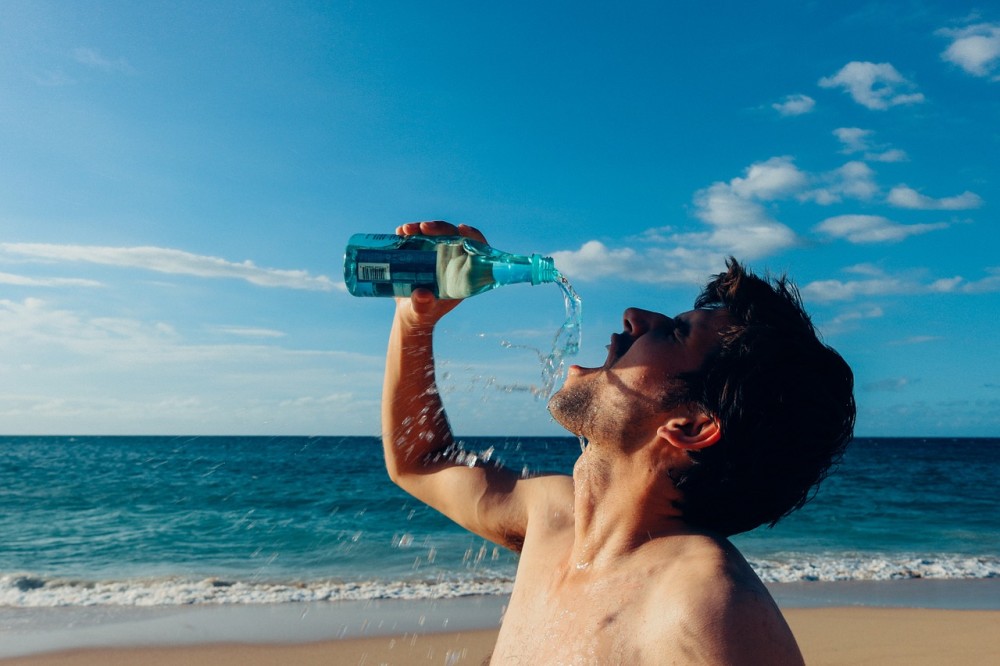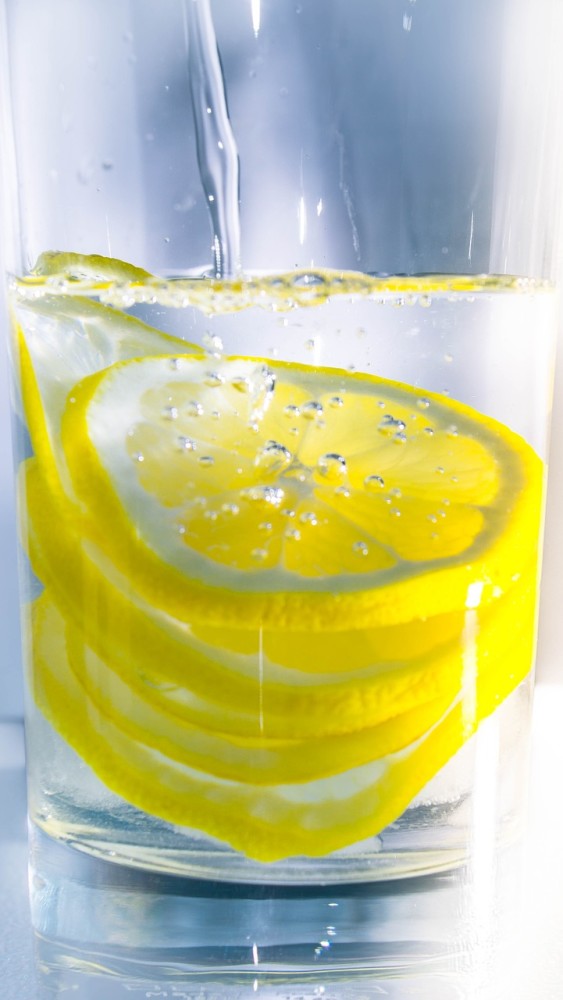 The ‘drink more water’ message has been drilled into most of us since we were kids, and it’s a widely held belief that you need to drink 2 litres/8 glasses of water per day to prevent you from becoming dehydrated. But is this actually the case?
The ‘drink more water’ message has been drilled into most of us since we were kids, and it’s a widely held belief that you need to drink 2 litres/8 glasses of water per day to prevent you from becoming dehydrated. But is this actually the case?
Actually no, not exactly. Yes, humans need water (it’s essential for basically all of the things our body does including digestion, absorption of nutrients and even keeping us at the right temperature), and it’s true that we need roughly about 2-2.5 litres per day, but there’s a bit more to it than that.
We get water from many other sources
All liquids we consume count towards our total fluid intake. Plus, we also get water from food, and there is water in a lot more foods than most people realise. Almost all foods contain some water, even those that look dry and hard, in fact, solid foods contribute about 20% of our total fluid intake. Think about how much water gets absorbed when you cook rice for example, most of that water ends up in the rice, so if you eat 1 cup of rice you’re getting at least 1/2 cup water.
How much water do you actually need?
Men need slightly more than women due to having more muscle. On average, men need around 2.6 litres/day (~10 glasses) and women need around 2.1 litres/day (around 8 glasses) – more if they’re pregnant or breastfeeding. But this is a total and includes all your food and fluids.
 But wait, doesn’t tea and coffee dehydrate you?
But wait, doesn’t tea and coffee dehydrate you?
Coffee and tea have been given a bad rap for their supposed dehydrating effects. The reason for this is that they both contain caffeine which is a diuretic when consumed in large doses (more than 500mg). Diuretics make you produce more urine which means you lose water and salt. However, the amount of caffeine you get in a cup of coffee (around 150mg) or tea (around 30-60mg) is unlikely to be enough to have an effect and will actually contribute to your overall daily fluid intake. If you have more than four cups of coffee a day you may see a diuretic effect, but less than that and you’re probably OK.
It is worth remembering though that there can be other adverse effects of excessive caffeine consumption including anxiety, irritability and sleeplessness.
What about alcohol?
Alcohol is a potent diuretic, which is why you need to go to the toilet so much when you drink. Alcohol reduces the production of the hormone which controls how much water the kidneys re-absorb, meaning that we produce significantly more urine when we drink.
So how can you minimise the damage? If you drink water while drinking alcohol, the diuretic effect is reduced by about 50%, meaning you’ll be less dehydrated (and hence suffer less of a hangover). But it’s worth remembering that no matter how much water you add, if you keep drinking, the net effect will still be dehydration. Yes, you are adding a lot of water to your system, but each shot of alcohol makes it that much harder for your kidneys to hold on to it.
Can you drink too much water?
Yes, technically you can, its called hyponatremia, and it can cause health problems and even death. But it’s a very rare occurrence in the general population. The body is pretty good at regulating itself when it comes to excess water consumption – so if you’re a healthy person living in normal environmental conditions you probably don’t need to worry too much.
So for all those people chugging down on 4 litres of water per day, if you just love to drink water and this love affair isn’t costing you hours of lost time in bathroom visits or a good night’s sleep then go for it. But unless you’re sweating buckets for some reason (you’re an endurance athlete/working outside on a hot day/just tend to sweat a lot or have a medical condition), you shouldn’t need to drink this much.
Dehydration
If your body weight decreases by as little as 2% due to dehydration, this can cause issues. The potential health effects of chronic (i.e. longterm) mild dehydration include increased risk of kidney stones, certain cancers and reduced physical and mental performance. This can happen for various different reasons, including consuming lots of diuretics like caffeine or alcohol, exercising a lot, living in very hot conditions or simply that you just don’t like drinking water. Some signs of dehydration include thirst (obviously), lethargy and sleepiness, decreased urine output, dry lips, dry skin and a dry mouth.
Tips for increasing your water intake
Keep forgetting to drink water?
- Keep a jug or bottle of water on your desk with a glass to remind you to drink
- Make a habit of carrying a bottle of water with you
Just don’t like the taste?
- Add a few pieces of fruit ot a jug or some lemon or lime juice if you don’t particularly like the taste of water
- Drink herbal tea. Not a fan? Try a few different ones, and give it some time – you might come around
- Try drinking it really cold, add some ice or keep water in the fridge
Want more nutrition advice? Have a look at how I can help

Leave a Reply